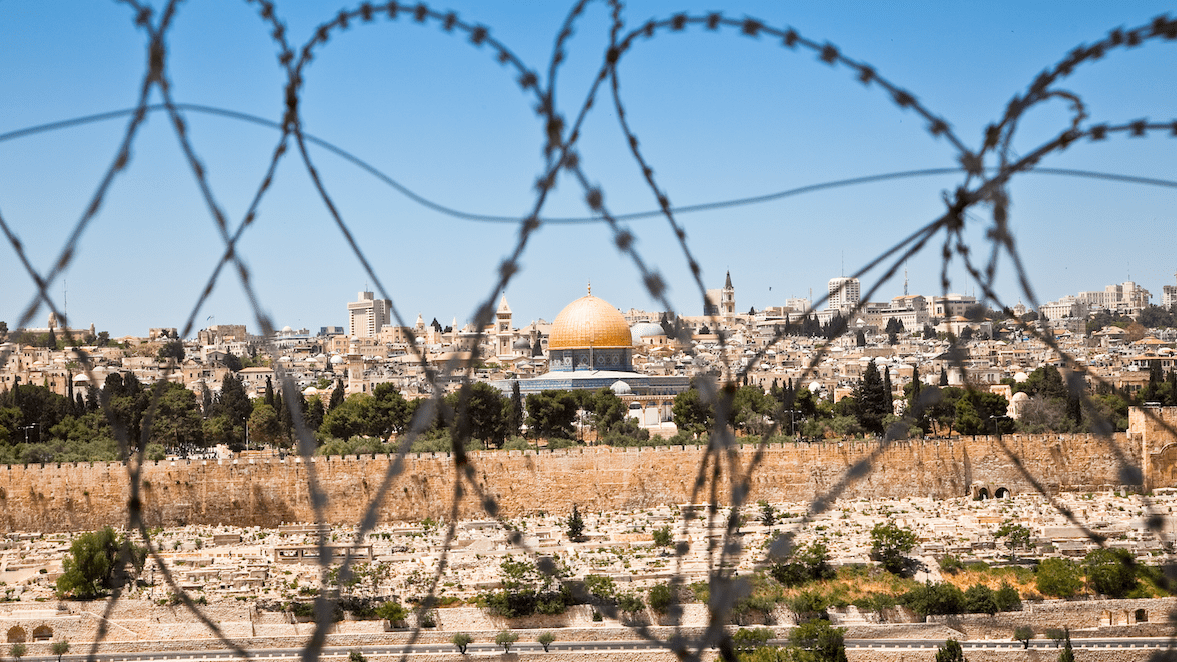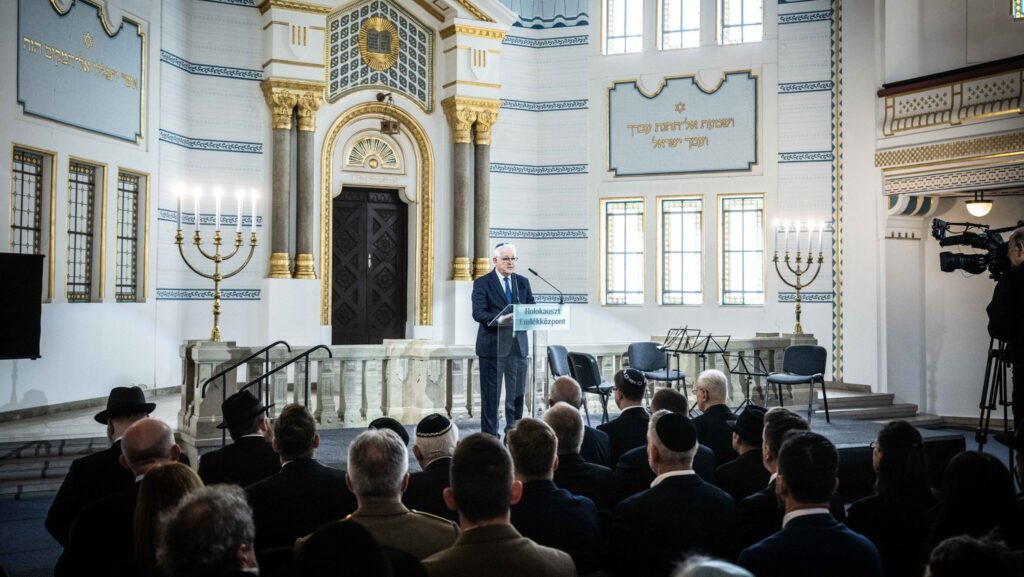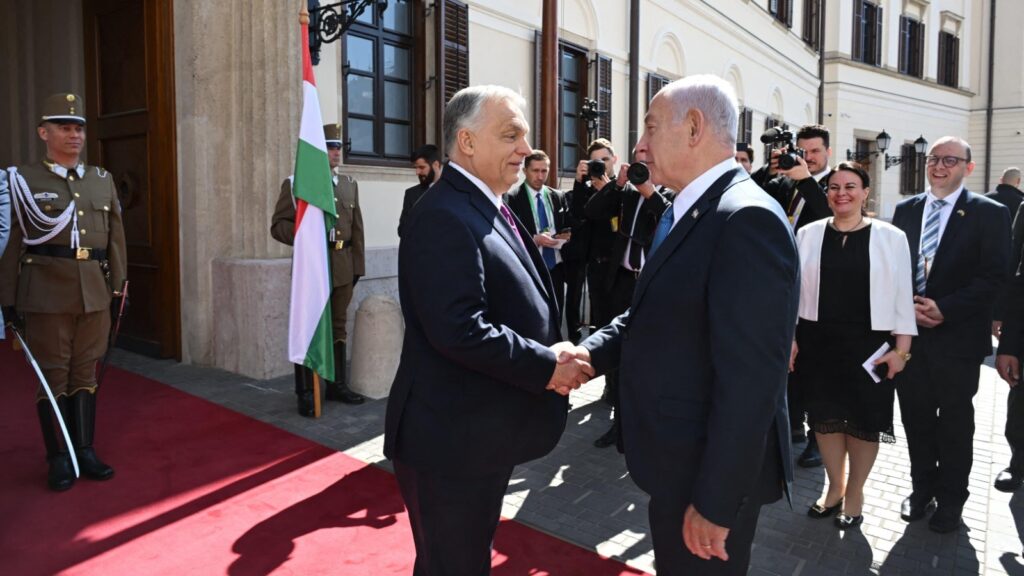There have been various fruitless peace processes within the last decades that have tried to keep the Israelis and the Palestinians from directly clashing with one another. The last time a peace process was attempted was when US President Donald Trump proposed a two-state solution in which part of the West Bank would be given to Israel, with Jerusalem as its undivided capital—in fact, just a handful of countries recognise Jerusalem as the Israeli capital—with a tunnel to connect the West Bank and Gaza. Investments of 50 billion dollars to develop the Palestinian territories had also been planned. The plan was immediately rejected by the Palestinian Authority, especially since they had not been consulted beforehand.
Obstacles to Peace
One obstacle to peace is that Israel refuses to leave the occupied territories, including the Golan Heights, that were wrested by the Syrians in 1967. But today’s major controversy stems from the occupation of the Holy City, a problem that arose following the Six-Day War (1967) won by Israelis. At the origin of this conflict was the attack on Israel by Jordan in 1950 that illegally annexed the territories it had conquered in the 1948 war, namely the Western Wall, the Jewish Quarter of Jerusalem, and the West Bank, thus preventing any possibility of Jewish access to these holy areas, as well as to the university and the hospital. The king of Jordan, subsequently, declared himself “Protector” of the Holy Land.
Israel refuses to leave the occupied territories
Yet, the quintessential hindrance to peace is socio-political in nature, one that is embedded in religion: both the Israelis and the Palestinians claim that the Holy City is exclusively theirs by divine right. The two parties refer to the following passages in their respective sacred books:
- ‘On that day the Lord made a covenant with Abram and said, “To your descendants I give this land, from the Wadi of Egypt to the great river (the westernmost border of the Land of Israel), the Euphrates—the land of the Kenites, Kenizzites, Kadmonites,Hittites, Perizzites, Rephaites, Amorites, Canaanites, Girgashites and Jebusites.”’ (Genesis 15, 18-21)
- ‘And [mention, Oh Muhammad], when Moses said to his people: “O my people, remember the favour of Allah upon you when He appointed among you prophets and made you possessors and gave you that which He had not given anyone among the worlds. Oh my people, enter the Holy Land which Allah has assigned to you and do not turn back [from fighting in Allah’s cause] and [thus] become losers.”’ (Sura 5, 20-21)
In Jewish and Biblical history, Jerusalem was the capital of the Kingdom of Israel during the reigns of Kings David and Solomon. It is also home to the Temple Mount, and the Western Wall—the last remnant of theTemple rebuilt by Herod I (72 BC-4 or 1 AD)—both highly sanctified sites in Judaism.
In Islamic history, Jerusalem was the first Muslim Qiblah (the direction which Muslims face during their prayer). It is also the place where Prophet Muhammad’s Isra’ and Mi’raj (bringing forward and ascension to heaven, also called the night journey) ensued according to the Islamic religious texts.
These histories are linked to another substantial, if not more polemical factor, that impedes both the Israelis and Palestinian Muslims from reaching a peace agreement. It is, to use an oxymoron, their exaggerated religiosity in their fundamental adherence to reciprocal justice, interpreted as‘ measure for measure (“an eye for an eye”):
- ‘You must show no pity: life for life, eye for eye, tooth for tooth, hand for hand, and foot for foot.’ (Exodus 21, 24)
- ‘And We ordained for them therein a life for a life, an eye for an eye, a nose for a nose, an ear for an ear, a tooth for a tooth, and for wounds is legal retribution.’ (Sura, 5, 45)
Zionist Extremists
Extreme Zionists in Israel, such as Eyal and the Religious Zionist Party, known as Tkuma, increasingly see themselves as guardians and definers of what the Jewish State should be like, and are intransigent when it comes to any concessions to the Arabs, whether they are Christian or Muslim.
They often dramatise current events, propagate rumours, whether they are factual or not, in the media and social media, about the hidden religious agendas of the other side, which further exacerbates tensions. Examples include rumours about a “Jewish Plan” to destroy the al-Aqsa mosque and build the Jewish third temple on its remnants.
There is also the Hilltop Youth, a hardline, extremist religious-nationalist youth who establish outposts without an Israeli legal basis in the West Bank. Their ideology includes the claim that the Palestinians are “raping the Holy Land”, and must be expelled. They have been condemned by the Israeli state.
Their tactics have been violent
It must be said, however, that Israel has contained its use of force to self-defence, notwithstanding its relentless and questionable expansion into lands inhabited by Palestinians or unanswerable killings, such as that of the Christian Palestinian-American journalist Shireen Abu Akleh this past June. As far as Palestinian Muslims are concerned, because Islam is a proselytising religion and jihad (holy war) is part of it, their tactics have been violent, with suicide bombers and the launching of missiles targeting innocent civilians. In addition, both Palestinian nationalists and jihadists, with the support of the Arab League, still feel compelled to retake the land which they hold was stolen from them.
Jihadist Doctrine
Islamic fundamentalists, such as Hamas or the aforementioned PIJ, have taken it upon themselves to fight a jihad against Israel to in order to form a Palestinian independent and sovereign state, as the apparently corrupt PLO has failed to attain that goal.
The term jihad, strictly speaking, refers to the religious obligation to persevere, to strive, to apply oneself, or to struggle for Allah’s cause. The idiomatic expression, as found in the Quran: ‘striving in the way [or purposes] of Allah [al-jihad fi sabil Allah]’ on this earth, means to fight against un-Islamic behaviour.[1]
Jihad becomes then a moral and individual obligation (fard ayn) or a collective one (fard kifaya). As per the numerous Quranic and hadith verses, if ‘Muslims neglect jihad for the sake of Allah, and prefer a life of ease, and focus only on this world, they will face humiliation and scorn, and all their affairs will be corrupted.’ Under the fard ayn, if Muslims see the need to fulfil this obligation through acts of terror, they do not need permission from any legitimate authority to do so. Jihad does not, however, require Muslims to personally engage in battle. If they simply finance a terrorist, for example, they would then be in compliance with the fard ayn:
‘He who equips a fighter in Allah’s path has taken part in the fighting. And he looks after a fighter’s family when he is away has taken part in the fighting.’ (Sunan Abu Dawood, hadith 2503)
The purpose for jihad as a holy war is to invite the nonbeliever, after proselytising (dawa) has failed, or to prevent the violation of the jizya (poll tax) owed by the People of the Book):
‘Fight against such of those who have been given the Scripture [People of the Book] who do not believe in Allah or in the Last Day and who forbid not that which Allah has forbidden by His Messenger, and follow [adopt] not the religion of truth from those who were given the Scripture—[fight] until they give the jizya willingly out of hand and have been humbled.’ —Sura 9, 29
Since Islam is the only religion worthy to be practiced, it has as its perspective complete and total world dominion, to eliminate what it considers false and misplaced worship. Jihad, which begins with an irreversible process of Islamisation, would logically mean that any reversibility, such as the recovery of its national territory by a subdued people, amounts to sacrilege. This is why Israel has no legitimacy in the Islamist worldview, since many Muslims hold they have been unjustly stripped from the dar al-Islam (place of peace) by the military power of infidels and their polytheist backers, like the US.
Peace in the Future?
Every single peace endeavour between the Israelis and the Palestinian (Muslims) has ended in either a stalemate or in violence.
It is legitimate to think that political harmony can be achieved between Israelis and Palestinian Muslims. (Christians make up 20 per cent of the 13 million Palestinians, but 70 per cent live outside Palestine and Israel because of Islamist persecution.) In order for both sides to live in harmony with each other, the Palestinians must first, as with other Islamic countries, acknowledge that Israel is an independent and sovereign country, regardless of how it got there.
Palestinians must acknowledge that Israel is an independent and sovereign country
A “two-state” solution can be a possible peaceful solution, although this would entail some sort of sovereignty over Jerusalem, limited as it may be, granted to the Palestinians. Without any cynicism, it is fair to say that believing that the Israelis would make such a concession would be like putting faith in the tooth fairy. There is also another underlying factor: the warring parties must be willing to overcome their mutual animosity. This, however, will not be realised anytime soon since those with an extreme mentality, especially those in political and religious authority, continue to harbour malice and justifiable vengeance among their respective populations. Peace, as the gospel message proclaims,‘can only come to men of good will’. (Luke 2, 14)
[1] Peter Bergen, United States of Jihad, New York, Crown Publishers, 2016, p. 10.








